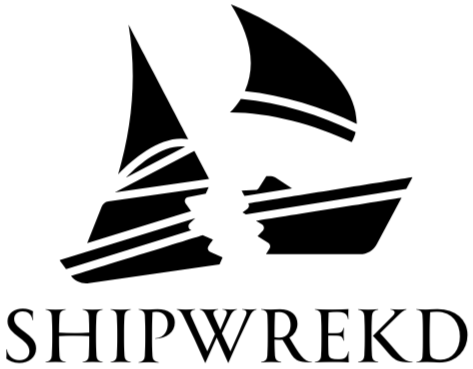Nusa Ceningan offers uncrowded waves, warm turquoise water, and a laid-back vibe perfectly suited for surfers. Discover everything you need for an unforgettable Nusa Ceningan surfing adventure.

Why Surf Nusa Ceningan?
Nusa Ceningan remains a relatively hidden gem compared to Bali’s busy breaks. Surfers who venture here find:
- Fewer crowds, even during peak months.
- Consistently clean reef breaks.
- Authentic charm and welcoming atmosphere.
- Opportunities for surfers at different skill levels.
While Bali draws much of Indonesia’s surfing spotlight, Nusa Ceningan rewards those seeking peaceful sessions amid stunning scenery—think limestone cliffs, swaying palms, and crystal-clear ocean as your backdrop.
Getting to Nusa Ceningan
Reaching this idyllic island isn’t complicated, but it does require a little planning.
- Boats from Bali: Fast boats run regularly from Sanur, Bali, to Nusa Lembongan. The trip takes about 30–45 minutes.
- Crossing the Yellow Bridge: Once on Lembongan, cross the iconic yellow bridge to Nusa Ceningan. The bridge is too narrow for cars, so a scooter or short walk is best.
- Scooter Rentals: Rent a scooter as soon as you arrive, as it’s the simplest way to access surf spots and explore the island.
Tip: Many guesthouses can organize transport from Bali, including boat tickets and transfers.
When to Surf Nusa Ceningan

Timing your trip can dramatically affect your experience. The island enjoys a tropical climate, but two main seasons impact surfing:
- Dry Season (May to September): This is the best period for Nusa Ceningan surfing. Swell is consistent, trade winds are favorable, and rain is minimal. Mornings tend to bring glassy conditions.
- Wet Season (October to April): Swells are less reliable and afternoon winds can get strong, making it more challenging. However, beginner surfers may enjoy the mellower waves at this time.
Regardless of season, always check local surf forecasts. Tidal movements can greatly affect wave quality due to the island’s shallow reefs.
Surf Spot: Mahana Point

Though Ceningan is compact, it holds some real treats for those chasing waves. Here’s where to paddle out:
Mahana Point Info:
- Skill Level: Intermediate to advanced
- Wave Type: Left-hand reef break
- Best Tide: Mid to high
- Notable Features: Powerful, long rides and occasional barrels
Ceningan Point is the island’s best-known break, offering punchy lefts peeling along the reef. On bigger swells, it provides solid, fast walls and occasional tube sections. Paddle out carefully, as sharp reef sits just below the surface.
Nusa Ceningan Surfing: Conditions and Hazards
A gorgeous setting shouldn’t make you complacent. Be aware of several local factors for safe and enjoyable surfing:
- Reef: Most breaks are over sharp, shallow reef. Booties are highly recommended, especially for first-timers at these spots.
- Tides: Low tide exposes more reef, making some waves dangerous for all but experts.
- Currents: Watch out for strong currents, particularly around the island’s points. If in doubt, ask local surfers or guides about the best windows to paddle out.
- Marine Life: While encounters with dangerous wildlife are rare, there are occasional jellyfish and urchins.
Most importantly, pace yourself and respect local etiquette. Don’t drop in on others and always smile—Nusa Ceningan’s charm lies in its relaxed, friendly vibe.
Surfboard Rentals and Lessons

While the Nusa Ceningan surfing scene is still developing, there are increasing options for board hire and tuition:
- Rentals: Board rental shops are clustered near the Yellow Bridge and main tourist areas. Choices include shortboards, funboards, and longboards. Inspect equipment for damage and clarify prices (expect to pay a little more than in Bali).
- Lessons: Beginner lessons are available from surf schools in both Ceningan and neighboring Lembongan. Lessons usually include transport to gentle breaks, surfboards, and basic coaching.
If you’re an advanced surfer, bringing your own board is recommended to ensure you have the right equipment for the island’s heavier reef waves.
Where to Stay: Top Areas for Surfers
Choosing accommodation near your preferred surf spots means more time in the water and less time commuting. Great options for surfers include:
- Ceningan Cliff area: Offers front-row seats to the surf, dramatic views, and the chance to check conditions from your balcony.
- Near the Yellow Bridge: Central for accessing both Nusa Lembongan and Ceningan’s main breaks.
- Budget Homestays: Simple family-run places cater to visiting surfers looking for affordable, social digs.
Accommodation ranges from luxury villas to surf shacks, with most properties offering board storage and easy beach access.
Responsible Surfing on Nusa Ceningan

With growing awareness of environmental issues, responsible surfing is vital to keep Nusa Ceningan special:
- Always pick up your trash—plastic pollution is a problem across Indonesia’s beaches.
- Respect the reef. Avoid standing where possible and never break off coral.
- Support local businesses by renting gear and eating at family-owned warungs.
- Greet others in the lineup and learn a few basic Indonesian phrases—it goes a long way!
- If you’re new to reef surfing, invest in a lesson to learn proper ocean safety and etiquette.
Essential Packing for Nusa Ceningan Surfing

A little foresight ensures comfort and safety in the tropics. Surfers should consider packing:
- Reef booties for foot protection
- Rash guard or lightweight wetsuit top (the sun is strong)
- Repair kit for your board, as repair services can be limited
- High SPF reef-safe sunscreen
- First aid kit (minor coral cuts are common)
Travel as light as possible, but don’t neglect essentials that make reef surfing safer and more enjoyable.
Conclusion
Nusa Ceningan surfing is all about relaxed living, friendly faces, and uncrowded waves in scenic surroundings. Whether you’re chasing perfect lefts or simply escaping the crowds, this island is one of Indonesia’s secret surfing gems. Ready to discover your new favorite break? Start planning your surf trip to Nusa Ceningan today.


